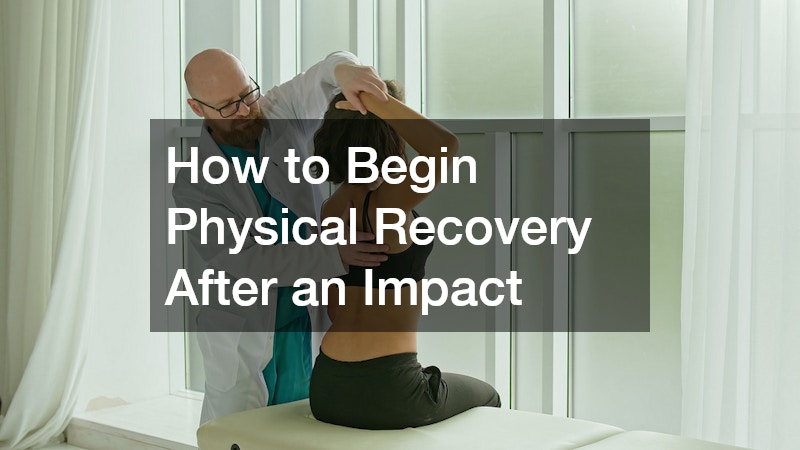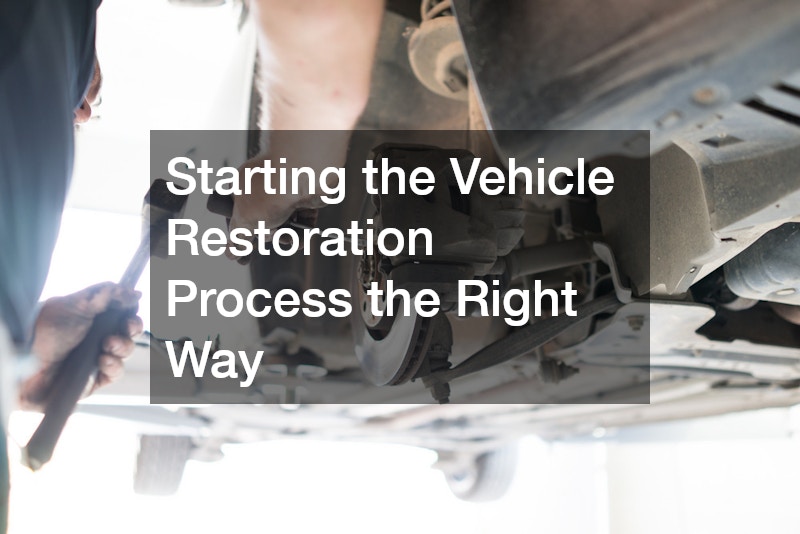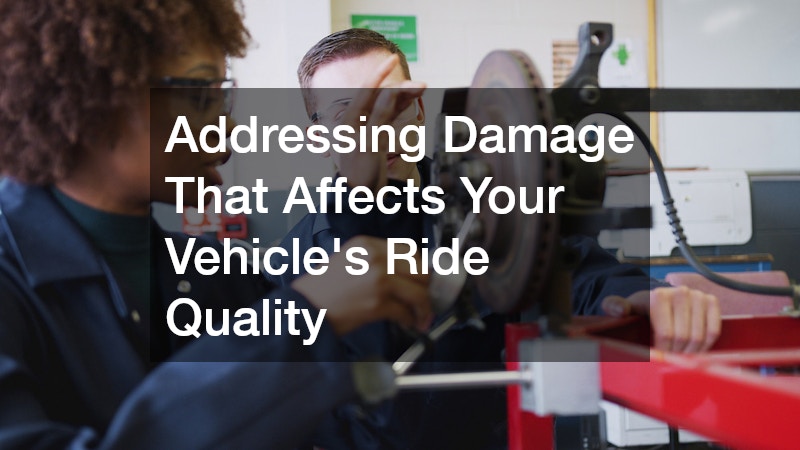In the aftermath of a car accident, emotions can run high. The shock of the unexpected incident can lead to confusion, anxiety, and a series of decisions that must be made almost immediately. Understanding the proper steps to take not only ensures your safety but also helps you navigate the legal, physical, and logistical challenges that follow. A well-informed plan is essential during those first critical moments and hours, when your choices can significantly impact your health, finances, and overall recovery.
This article will guide you through the key actions to take at the scene, how to protect your well-being, and what to prioritize once the initial chaos begins to settle. You will learn how to assess the situation calmly, communicate effectively with first responders, and document important details that may be needed later. We will also cover the importance of getting a thorough medical evaluation, even if you feel fine, and why monitoring delayed symptoms is essential for your long-term health.
Additionally, you’ll gain insight into handling the logistical side of recovery, including arranging temporary transportation, coordinating repair efforts, and choosing experienced professionals who can help you restore your vehicle safely. The goal is to give you a clear and organized roadmap that reduces uncertainty, helps you make confident decisions, and supports you in moving forward after the collision. By taking intentional steps during the first 72 hours, you set the foundation for a smoother, safer, and more manageable recovery process.

How Professional Support Can Help You Stabilize the Situation at the Scene
When involved in a car accident, the first step is to ensure that everyone is safe. Emergency roadside assistance can be invaluable during this initial phase, as they provide skilled professionals who can handle any immediate threats. They can help direct traffic away from the scene, offer medical aid if necessary, and facilitate communication with law enforcement.
Once emergency services arrive, it’s crucial to gather necessary information. Professional responders can document the scene accurately, which will be important for later legal purposes. They can also guide you on how to handle communication with your insurance company, ensuring you don’t overlook vital details.
In addition to physical safety, emotional stability is critical after a collision. Professionals trained in emergency roadside assistance can help calm nerves and provide reassurance. They can also recommend local services, such as auto mechanics for immediate assessments of your vehicle, ensuring that you’re not left stranded.
Understanding Your Legal Rights After a Collision
Following an accident, it’s essential to understand your rights under injury law. Many people overlook the legal implications of a crash, especially regarding liability and potential compensation. A car accident attorney can guide you through the complexities of these laws, ensuring you are not taken advantage of.
Your legal rights can vary by state, making it vital to consult with a professional who understands the specifics of your jurisdiction. They will advocate for you and work to secure compensation for medical expenses, lost wages, and emotional suffering. Having this knowledge early on can significantly affect your recovery journey.
Documenting the incident is a pivotal part of asserting your legal rights. Keeping track of medical records, police reports, and correspondence with your insurance company will provide invaluable evidence later on. A car accident attorney will assist you in organizing all this information effectively to build a strong case.
When to Seek Legal Guidance After a Crash
Not every accident necessitates immediate legal intervention, but knowing when to seek assistance is crucial. If there are injuries involved, or if the other party is disputing liability, it’s time to consult a car accident attorney. Professional advice can clarify your available options and help you navigate the complexities of your situation.
Another indicator that legal guidance is needed is if the accident has resulted in significant property damage or disputes over insurance claims. A car accident attorney can help ensure that you receive fair treatment from insurance companies, which often seek to minimize payouts. They can also represent you in negotiations.
In cases where emotional distress or long-term injuries arise, legal representation can be incredibly beneficial. Complex injury law entails various entitlements and rights that laypeople may not be knowledgeable about or confident in asserting. Having a skilled attorney by your side can provide a sense of security as you seek recovery.

How to Begin Physical Recovery After an Impact
After ensuring safety and settling legal matters, focusing on your physical recovery is paramount. This often begins with visiting a healthcare professional, who can assess any injuries you may have sustained. Chiropractic adjustments are an excellent option to consider for restoring balance and alleviating pain in various areas of the body affected by the collision.
Physical therapy may also be necessary as part of your recovery process. Depending on the severity of injuries, engaging with a trained therapist can help regain strength, mobility, and function over time. Additionally, combining chiropractic care with physical therapy has been shown to yield optimal results for recovery.
Listening to your body is critical during recovery. It’s essential to follow medical advice and attend all follow-up appointments to ensure a full recovery. Practicing patience and commitment to your health will manifest better long-term outcomes.
What to Know About Replacement Components for Your Vehicle
Post-collision, one of the most important considerations will be repairing your vehicle. Depending on the extent of the damage, you may need to know about different auto parts and components that require replacement. Understanding what’s necessary will help make the restoration process faster and more efficient.
When dealing with car repairs, consider the quality of parts being used. Genuine OEM auto parts may come at a higher price, but they often provide better durability and performance over time compared to cheaper alternatives. Understanding the trade-offs will help you make informed decisions about restoring your vehicle to its pre-accident condition.
Additionally, your insurance company may have specific guidelines regarding replacement parts, which can influence your choices. It’s vital to discuss these aspects with your car accident attorney to ensure that you receive appropriate compensation for any necessary auto repairs. Keeping an organized inventory of damaged parts can also be beneficial for your insurance claim.
Making Temporary Transportation Arrangements After a Wreck
While your vehicle is being repaired, you may need to make temporary transportation arrangements. A reliable car rental service can ensure you remain mobile during this challenging time. This convenient solution allows you to carry on with your daily activities until your vehicle is returned.
Insurance policies vary concerning rental coverage. Understanding your policy regarding car rentals can help optimize your coverage and save money. Consulting your car accident attorney regarding reasonable transportation costs can also ensure that you’re compensated adequately.
When picking a rental service, consider your budget and the size of vehicle you need temporarily. Researching local rental companies and comparing prices will help you make an informed decision. Secure a rental as soon as possible to reduce disruptions in your daily life.

Starting the Vehicle Restoration Process the Right Way
Once you have a clear understanding of what needs to be repaired on your vehicle, the restoration process can begin. Starting with an inspection from a qualified auto mechanic will provide clarity on damage and a detailed estimate. Proper diagnostics will ensure no hidden issues are overlooked.
After understanding the extent of auto repairs needed, it’s time to develop a plan for restoration. Consulting with your mechanic about timelines and costs will ensure all parties are on the same page. Communication with your insurance company about the restoration process is essential to ensure claims are processed smoothly.
Implementing proper restoration steps and utilizing quality auto parts will ensure your vehicle’s longevity and optimal performance. Choose an auto mechanic who prioritizes workmanship and customer satisfaction. Completing your restoration efficiently will help you get back on the road as soon as possible.
Choosing a Qualified Professional to Inspect Your Vehicle
Choosing the right auto mechanic is crucial for ensuring your vehicle is thoroughly inspected post-accident. Look for professionals who come highly recommended and who have a good reputation in your area. A trustworthy mechanic will offer transparent estimates and provide excellent service.
When selecting a mechanic, consider their specific expertise in your vehicle’s make and model. Some mechanics may specialize in particular vehicles or types of repairs, enhancing their ability to perform quality work. It’s also beneficial to check for certifications and training that demonstrate their competence.
Finally, ensure that your chosen mechanic is experienced in dealing with post-collision repairs. They should be familiar with the common issues that arise from accidents. This experience can expedite the inspection and repair process significantly, getting you back on the road sooner.
Ensuring That Critical Safety Systems Are Fully Functional
After a collision, ensuring that your vehicle’s safety systems are fully functional is paramount. One crucial aspect of this is the brake system. Seeking a qualified brake repair service will help you address any issues effectively to prevent future accidents.
During the inspection, the mechanic will assess the integrity of brakes, including pads, rotors, and fluid levels. It’s essential to address any issues found during the inspection to ensure safety when driving. Make sure to request a complete report of all findings and repairs conducted.
In addition to brakes, other safety systems include airbags, seat belts, and stability control features. A thorough inspection by your auto mechanic will help identify any compromised safety elements. Keeping these systems in top condition should be a priority to safeguard your wellbeing on the road.

Addressing Damage That Affects Your Vehicle’s Ride Quality
Once you’ve repaired any severe damages, it’s time to focus on ride quality. Issues related to the suspension system can result from an accident, impacting handling and comfort. Addressing these issues typically involves auto shock replacement, which should be done by an experienced mechanic.
Unstable or bumpy rides may suggest that your vehicle’s shocks are worn or damaged, affecting overall driving experience and safety. Replacing shocks or struts improves vehicle handling, making for a smooth ride. Proper insulation of your vehicle should alleviate discomfort from road imperfections.
Additionally, if you notice strange noises or changes in handling, report these concerns to your mechanic. Early intervention can prevent escalating damage that could lead to more extensive repairs down the road. Regular maintenance and inspections after repairs can help keep your vehicle in optimal condition.
Navigating the aftermath of a car accident can be overwhelming, but arming yourself with the right knowledge can ease the process. From understanding your legal rights to managing your physical recovery, every step plays a vital role in returning to normalcy. Engaging emergency roadside assistance right after an accident ensures immediate safety and expert handling of the situation.
Following your accident, the guidance of a car accident attorney will help you navigate injury law and your legal rights effectively. You’ll also learn the necessity of quality repairs from a qualified auto mechanic and the importance of ensuring that your vehicle’s safety systems are fully functional, ultimately leading to a successful resolution post-collision.
Remember, taking the appropriate steps towards recovery, from securing transportation to restoring your vehicle, will not only set you on the path to returning to your regular life but also help you feel more confident and secure behind the wheel again. Prioritize your health, safety, and the integrity of your vehicle as you gracefully transition back onto the road.
In addition, the journey after a crash often requires patience and persistence. Coordinating medical follow-ups, monitoring ongoing symptoms, and confirming that all repairs were completed correctly can feel overwhelming, but these actions play a critical role in protecting your long-term well-being. Staying organized with documentation—such as receipts, repair orders, medical records, and communication logs—can also make a significant difference should any disputes or questions arise later.
It’s also wise to periodically reassess how you feel physically and emotionally. Collisions can trigger lingering stress or discomfort, and addressing these concerns early ensures faster recovery. Finally, maintaining open communication with your insurance provider, repair specialists, and legal counsel helps avoid delays and ensures that every detail is handled with care. By staying proactive and informed, you empower yourself to move forward with clarity and confidence, knowing you’ve taken every step to safeguard your future after the accident.
